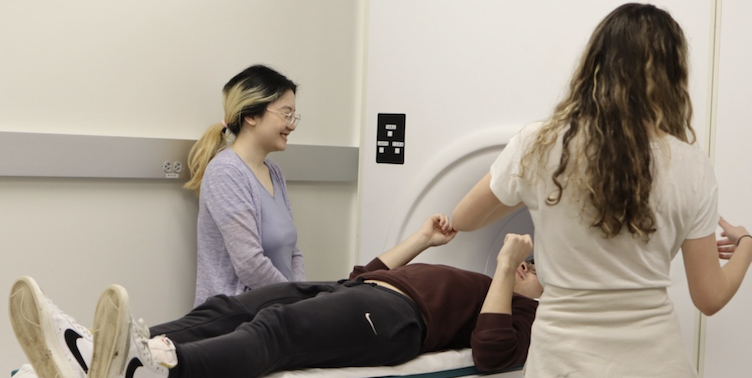Carney Institute grants $665k in innovation awards to nine scientists

Nine scientists affiliated with the Robert J. and Nancy D. Carney Institute for Brain Science have received innovation awards from the institute to take risks and test bold ideas.
Established in 2014, the Zimmerman Fund for Scientific Innovation Awards in Brain Science catalyzes impactful research into the brain. The awards support risky, early-stage projects that are too new to attract external funding but have great potential to advance science and benefit society.
This year, the institute received 20 meritorious applications spanning 10 departments across Brown University. Six awards totaling $665,000 were granted after rigorous scientific and administrative review by a panel of experts mirroring the application pool. Four of the six awards received a supplement to support junior investigators and their teams.
The following is a description of the projects funded by this year's innovation awards.
An active and intelligent assistive device for people with blindness and low vision
Investigator: Michael Paradiso, Department of Neuroscience
Michael Paradiso and his team will combine their experience studying human visual perception and its brain mechanisms with an interest in exploiting advances in artificial intelligence. The goal is to develop a non-invasive visual prosthesis that will dramatically increase the independence and quality of life of millions of people with blindness and low vision.
Discovering the mechanisms underlying brain aging using direct reprogramming
Investigator: Ashley Webb, Department of Molecular Biology, Cell Biology, and Biochemistry
Aging is the single greatest risk factor for neurodegeneration, yet the mechanisms responsible remain poorly understood. The goal of this project, which received an initial innovation award in 2018, is to develop a system for studying naturally aged neurons in a culture system that can be applied to study both physiological aging and neurodegenerative disease.
New biomarkers for neurodegenerative diseases
Investigators: Alexander Fleischmann, Department of Neuroscience, Petra Klinge, Department of Neurosurgery, and Thomas Serre, Department of Cognitive, Linguistic & Psychological Sciences
Neurodegenerative diseases represent a major threat to human health. Led by an interdisciplinary team of researchers, this project aims to establish the experimental protocols and analyses pipelines for the discovery of new biomarkers for neurodegenerative diseases.
Testing a novel neurocomputational account of the socioeconomically driven achievement gap
Investigators: Amitai Shenhav, Department of Cognitive, Linguistic & Psychological Sciences, and Dima Amso, Department of Cognitive, Linguistic & Psychological Sciences
The amount of effort we, humans, invest in any given task can depend on our history of being rewarded for that effort. This project aims to understand the role of nurture — the reward structure of the environment one grows up in — in influencing how one perceives the potential costs and benefits of certain kinds of effort. The researchers are especially interested in the role socioeconomic factors play in shaping these perceptions.
Using 1H MRS to Understand Emotion
Investigator: Tara White, Department of Behavioral and Social Sciences
This project will provide preliminary data necessary to establish a three-pronged research program on brain metabolites that contribute to natural emotion in healthy adults. Professor White’s long-term goal is to build a programmatic course of research on the neurobiology of human emotion at Brown University.
Using large-scale social networks to infer the neural mechanisms of structure learning
Investigator: Oriel FeldmanHall, Department of Cognitive, Linguistic & Psychological Sciences
This project will offer critical insight into the neural mechanisms that underlie social learning, how social knowledge is represented in the brain, and how people make adaptive decisions that contribute to social and emotional well-being.



